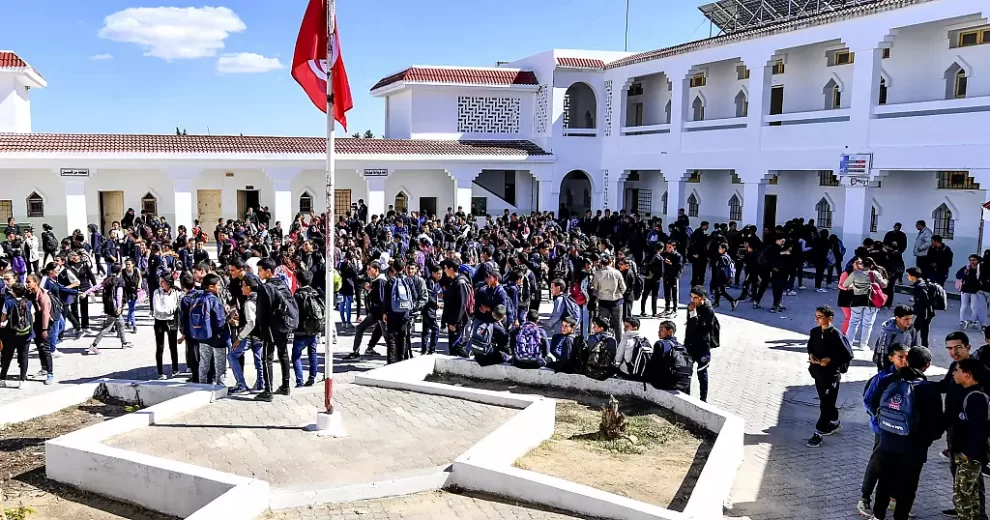The Makthar boarding school in Tunisia looks ordinary but a partnership with NGO Wallah We Can has made it unique.
Thanks to patrons the school located in the country’s rural north-west is equipped with over a hundred solar panels and solar water heaters covering the school’s energy needs.

The NGO aims to transform more public schools into a what it calls a social enterprise.
“A public school transformed into what we call a social enterprise; is a school that is energy self-sufficient and produces its own food”, Lotfi Hamadi, the founder of the local NGO explains.
“This enables the school to save money on the electricity bills as well as the school canteen bills. Moreover, it can sell the energy and agricultural surplus.”
Finance a variety of courses
With the energy and food income, extracurricular clubs have been launched: robotics, entrepreneurship, foreign languages and civilisations, media, singing, e-learning…
“The experience I gained allowed me to have more confidence in myself”, 14-yearl old Chahed Salhi says.
“It taught me a lot of things, including in entrepreneurship”, says the girl who dreams of setting up a tourist business.
Nowadays 100,000 young people drop out of school every year in Tunisia.
In a country where a majority of young people plan to emigrate, according to numerous studies, Wallah We Can would like children “to become reconciled with their country and discover the opportunities it can offer them”.
The Mokthar boarding school has become popular in the region thanks to its privileged learning environment.
“Everyone wants to study here; we’ve heard about lots [of students] who came, everyone around wants to learn in this boarding school”, Taher Meterfi reveals.
The director then adds: “We have discipline, the intervention of the NGO “Wallah We Can,” the conditions are very favourable and good, and we have had 80 requests [for students wishing to study there].”
The NGO Wallah We Can rents eight hectares of land cultivated by an agricultural cooperative which employs parents of pupils, formerly unemployed, and an agronomist.
The next step for the NGO is a 40-hectare “agro-energy farm” to provide food and electricity for the 23 schools in Makthar.
Source:https://www.africanews.com/




















Add Comment